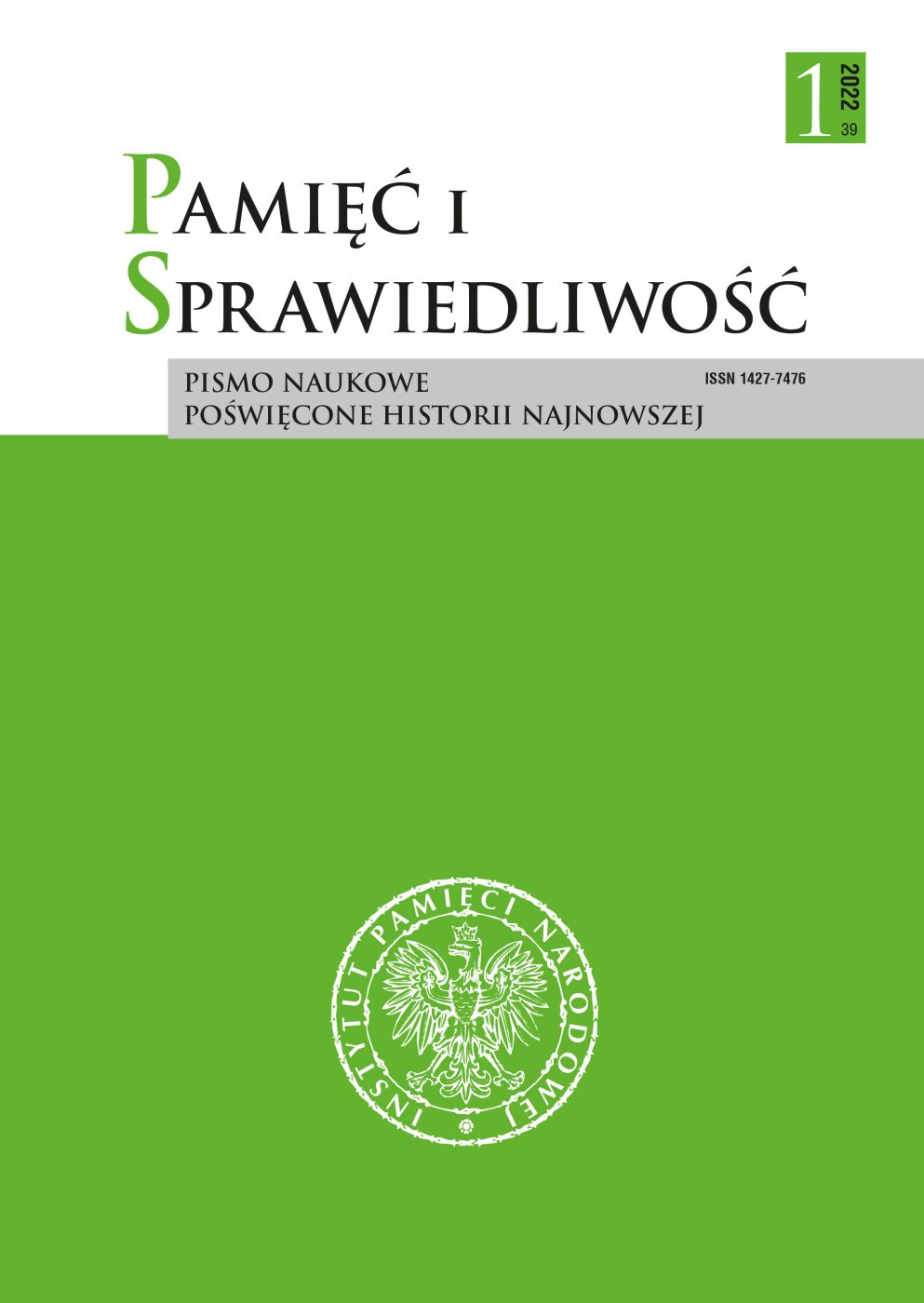Tom 39 Nr 1 (2022)
Cechą charakterystyczną dziejów Europy Środkowej i Wschodniej XX–XXI w. była (i jest) dominacja na tym obszarze lub jego części państw autorytarnych i totalitarnych (Rosja carska, ZSRS, hitlerowskie Niemcy, współcześnie rządy Władimira Putina). Dlatego tak ważną rolę odgrywała tu emigracja polityczna jako miejsce działania ludzi narażonych w swoich krajach na represje oraz przestrzeń powstawania idei niemających poza wychodźstwem szans na rozwój. Problematyką wiodącą numeru 39 „Pamięci i Sprawiedliwości” jest emigracja z omawianego regionu na zachód oraz na Daleki Wschód (Harbin), ujmowana syntetycznie oraz przez dzieje poszczególnych środowisk politycznych i jednostek. Artykuły dotyczą wychodźstwa politycznego z Rosji, Ukrainy (Zachodniej i Naddnieprzańskiej), Kaukazu (Gruzini i Czerkiesi) i Polski oraz prób zjednoczenia wysiłków emigrantów w celu obalenia reżimu sowieckiego w ZSRS i odzyskania niepodległości przez narody od nich zależne (ruch prometejski oraz próby jego kontynuacji po 1939 i 1945 r.). Tematem osobnej grupy artykułów jest środowisko rodzinne, poglądy i przebieg kariery politycznej wybitnego przedstawiciela obozu piłsudczykowskiego płk. Ignacego Matuszewskiego. Pojedyncze artykuły dotyczą: postrzegania Bitwy Warszawskiej 1920 r. przez obcokrajowców przebywających wówczas w Polsce, przynależności nazizmu do lewicy lub prawicy, historiografii obozu koncentracyjnego dla dzieci, istniejącego w Łodzi podczas II wojny światowej, a także działalności stowarzyszeń mających za cel kultywowanie przyjaźni komunistycznej Polski z ZSRS, Czechosłowacją, Jugosławią i Bułgarią.
 Język Polski
Język Polski
 English
English
 Deutsch
Deutsch
 Français (France)
Français (France)
 Italiano
Italiano
 Русский
Русский


 PDF
PDF

